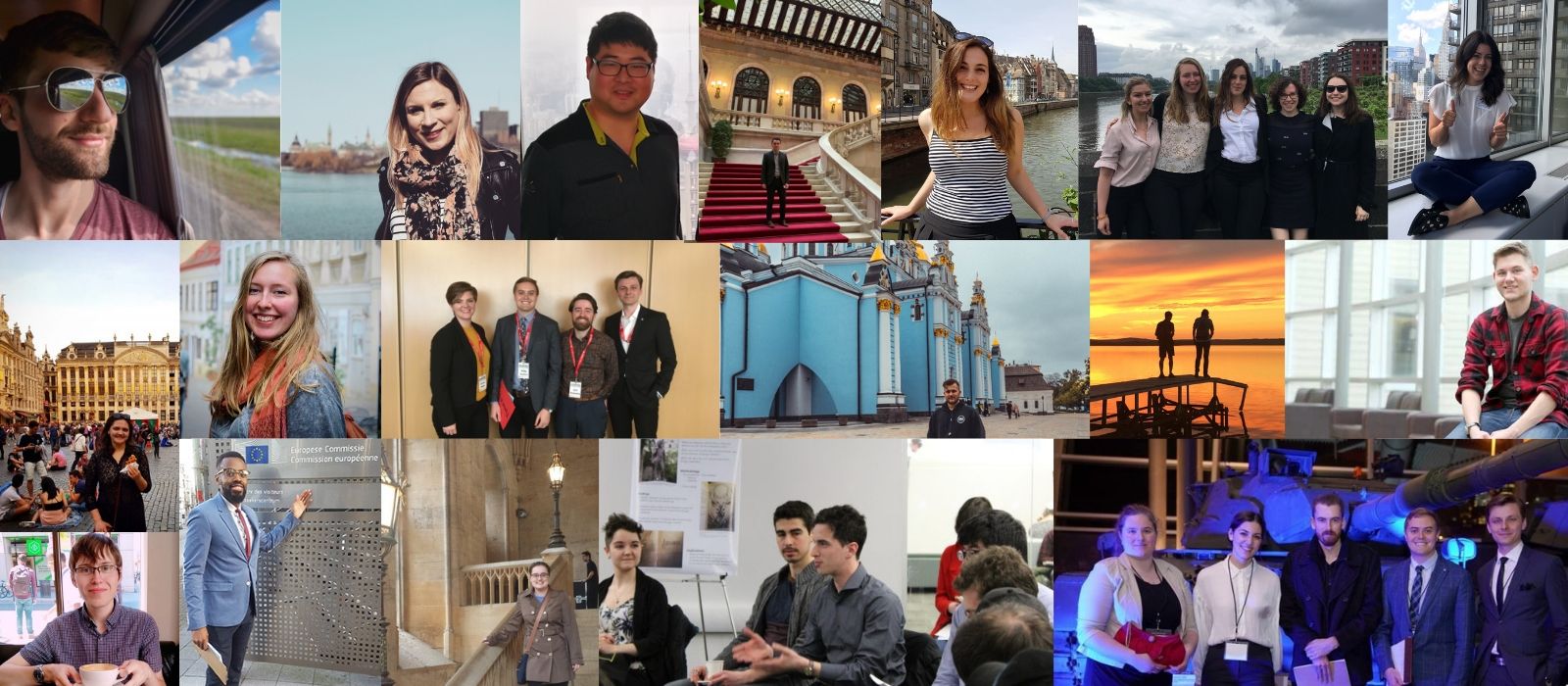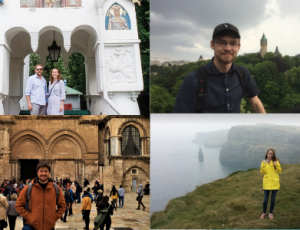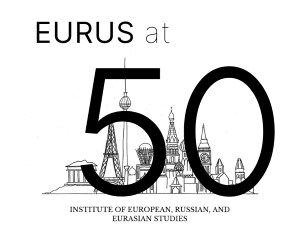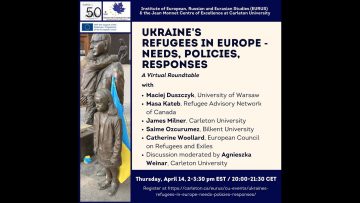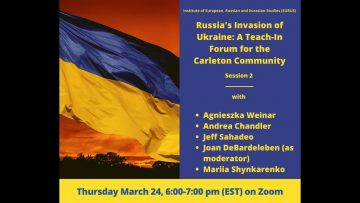Welcome to the Institute of European, Russian, and Eurasian Studies
The Institute of European, Russian, and Eurasian Studies (EURUS) is a premier academic unit at Carleton University. Our interdisciplinary focus provides for a unique learning experience, as undergraduate- and graduate-level courses cover all social science and humanities disciplines. Graduate students are encouraged to approach their research project from an interdisciplinary lens. Located in Canada’s capital region, EURUS has a vast network inside and outside of academia, which our students have used to help them pursue both their professional and academic career goals.
Are you considering pursuing an M.A. degree and would like to learn more about EURUS has to offer? Click here to learn more about our program!
Follow us on Social Media
EURUS is led by a number of top scholars in the field, whose research studies all of the countries of European, Russian, and Eurasian regions and the international organizations which operate it (i.e. NATO and the European Union). Our scholars approach the study of these regions from several academic disciplines, including Political Science, Economics, History, and Cultural Studies and International Relations. Our students have the opportunity to take courses taught by these scholars, have their research supervised by them, and actively participate in in their projects as research assistants.
EURUS offers a Bachelor of Arts (BA) and an Master of Arts (MA) program, as well as a Graduate Certificate in European Integration Studies and a BGinS specialization in Europe and Russia in the World. EURUS offers a wide variety of interdisciplinary and transnational courses at the BA and MA levels. They engage with current issues in the region, including the ongoing War in Ukraine, nationalism in Russia and the former Soviet Union, and EU-China relations. All of these courses analyze recent developments in the region and integrate them into their coursework in order enhance students’ understanding of the topic.
EURUS MA students undertake a wide variety of research projects. Students are encouraged to study their chosen topics from an interdisciplinary lens. They also have opportunities to acquire or improve regional language skills to analyze primary documents from the region, including through funded language training programs abroad. These projects allow students to produce original pieces of research that can form the basis for a doctoral dissertation.
Equipped with experience and knowledge from both research and coursework, EURUS graduates have pursued exciting careers in government, NGOs, the private sector, law school, and doctoral studies. EURUS students can also take advantage of Carleton’s co-op program for two paid fulltime work terms. EURUS graduate students have been placed in positions across the Federal Government (including Global Affairs, Public Safety, Immigration and Refugee Council, and National Defense) as well as in NGO and private sectors. They can also enroll in the EURUS-exclusive internship program for an additional credited work term. Most of our students are offered full time jobs in these organizations post-graduation. Moreover, EURUS work opportunities and coursework provides concrete skills to build their experience for future careers and to make connections with collogues and professionals in both private and public sectors.
Check out our Podcast
Want to learn more about what it is like to study at EURUS? The Getting to Know EURUS podcast interviews students and alumni about their academic and professional journeys before, during, and after their graduate studies. You can find the podcast feed below.
Carleton’s Commitment to Accessibility
At Carleton University, we strive to be a leader in creating an inclusive, accessible community, where everyone has access and the opportunity to fully participate and thrive in all aspects of campus life. We acknowledge that not everything in our community is accessible and we are actively working on identifying and addressing accessibility barriers, preventing barriers through inclusive design, and fighting ableism. We continue to foster a culture of accessibility where this commitment is a shared and valued responsibility.
